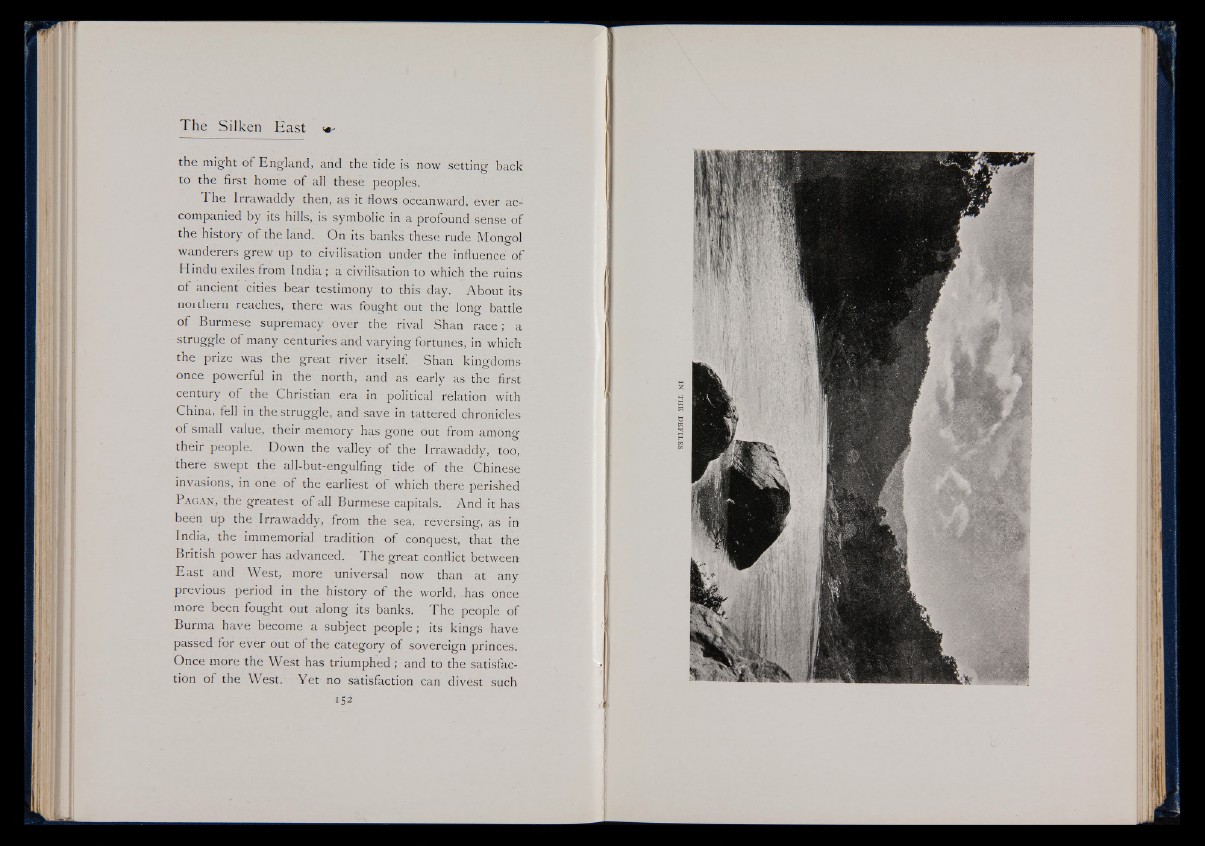
the might of England, and the tide is now setting back
to the first home of all these peoples.
The Irrawaddy then, as it flows oceanward, ever accompanied
by its hills, is symbolic in a profound sense of
the history of the land. On its banks these rude Moncrol - O
wanderers grew up to civilisation under the influence of
Hindu exiles from India ; a civilisation to which the ruins
ot ancient cities bear testimony to this day. About its
northern reaches, there was fought out the long battle
of Burmese supremacy over the rival Shan race; a
struggle of many centuries and varying fortunes, in which
the prize was the great river itself. Shan kingdoms
once powerful in the north, and as early as the first
century of the Christian era in political relation with
China, fell in the struggle, and save in tattered chronicles
of small value, their memory has gone out from among
their people. Down the valley of the Irrawaddy, too,
there swept the all-but-engulfing tide of the Chinese
invasions, in one of the earliest of which there perished
Pagan, the greatest of all Burmese capitals. And it bas
been up the Irrawaddy, from the sea, reversing, as in
India, the immemorial tradition of conquest, that the
British power has advanced. The great conflict between
East and West, more universal now than -at any
previous period in the history of the world, has once
more been fought out along its banks. The people of
Burma have become a subject people ; its kings have
passed for ever out of the category of sovereign princés.
Once more the West has triumphed ; and to the satisfaction
of the West. Yet no satisfaction can divest such
152
IN THE D E F ILE S